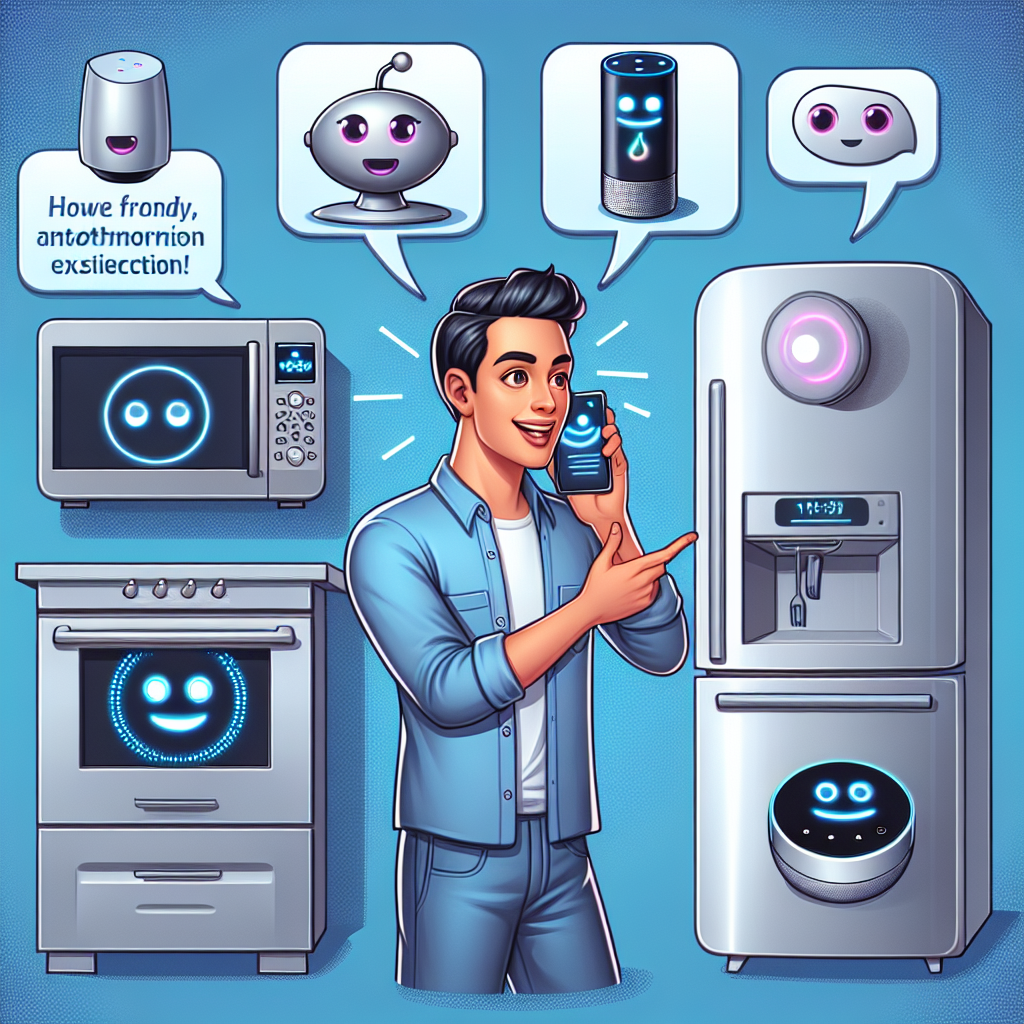In today’s fast-paced business environment, small businesses are discovering a powerful ally in AI SaaS creation platforms. These innovative tools are democratizing access to artificial intelligence, allowing entrepreneurs and small teams to create customized digital workers without writing a single line of code. The transformation is remarkable – tasks that once required specialized development teams can now be automated by anyone with a vision and access to the right platform.
The emergence of user-friendly AI tools has leveled the playing field, enabling small businesses to compete with larger corporations by harnessing the same advanced technologies. According to recent industry data, small businesses using AI SaaS platforms report up to 40% increases in productivity and 30% reductions in operational costs. This revolutionary approach to business automation is changing not just how work gets done, but who can participate in the AI revolution.
The Building Blocks of Modern AI SaaS Platforms
AI SaaS creation platforms are comprised of several key components that work together to make artificial intelligence accessible to non-technical users. At their core, these platforms feature robust AI applications that handle complex processing tasks while presenting simple interfaces to users. The magic happens in how these components interconnect to create powerful business solutions.
Low-code platforms represent the foundation of this accessibility revolution. These intuitive interfaces allow users to design workflows and build applications using visual elements rather than programming languages. As Sarah Johnson, founder of a boutique marketing agency, explains: “Before discovering low-code AI platforms, I thought automation was only for big companies with IT departments. Now my three-person team has built custom marketing automation tools that work better than expensive off-the-shelf solutions.”
Intelligent collaboration tools form another crucial component, enabling teams to work together on developing and refining their AI digital workers. These collaboration features allow for real-time feedback and iterative improvement, creating a fertile environment for innovation even within small organizations.
The combination of these elements creates an ecosystem where AI becomes a natural extension of existing business processes rather than a disruptive force requiring specialized knowledge. For small businesses, this means being able to implement sophisticated AI solutions that are perfectly tailored to their unique needs without the traditional barriers of technical complexity or prohibitive costs.
Customizable AI Digital Workers: Tailoring Technology to Your Business
Perhaps the most exciting aspect of AI SaaS creation platforms is the ability to develop customizable AI digital workers that serve specific business functions. Unlike generic software solutions, these digital workers can be precisely configured to handle the unique demands of individual businesses across various industries.
Take the case of Riverfront Bakery, a family-owned business that created a digital inventory manager using an AI SaaS platform. Owner Marcus Chen shares, “Our AI assistant tracks ingredient usage, predicts upcoming shortages, and automatically places orders with our suppliers. It knows our seasonal patterns and adjusts accordingly—something generic inventory software could never do.” This level of personalization allows small businesses to address their most pressing challenges with targeted automation.
The customization process typically involves:
- Identifying specific business processes that could benefit from automation
- Configuring AI digital workers to perform these tasks according to business rules
- Training the system with company-specific data and examples
- Refining the digital worker’s performance through feedback loops
This approach to personalized automation enables small businesses to enhance productivity in ways that were previously inaccessible. A digital worker can process customer inquiries, generate content, analyze market trends, or manage scheduling—all while adhering to the specific protocols and standards of the business it serves.
The flexibility of these customizable solutions means they can grow and adapt alongside the business, continuously learning from new data and adjusting to changing requirements. This scalability makes AI SaaS platforms particularly valuable for small businesses with limited resources but ambitious growth plans.
Creating, Sharing, and Selling AI Products: The New Entrepreneurial Frontier
Beyond improving internal operations, AI SaaS creation platforms are opening new revenue streams for innovative entrepreneurs. As users develop effective digital workers for their own needs, many discover opportunities to share or sell these solutions to others facing similar challenges.
John Rivera, a freelance graphic designer, exemplifies this trend: “I built an AI tool to help me generate initial concepts based on client briefs. When other designers saw it in action, they wanted access too. Now I sell subscriptions to my design assistant and make more from that than from my design work.” This pattern of accidental entrepreneurship is becoming increasingly common as the barriers to AI product creation fall away.
The emerging ecosystem includes marketplaces where creators can list their AI products, reaching potential customers without needing traditional marketing channels or distribution networks. This democratization of AI commerce creates a virtuous cycle where:
- Entrepreneurs identify niche problems within their industries
- They create specialized AI solutions using low-code platforms
- These solutions are refined through real-world application
- The proven tools are then offered to others in similar situations
For small businesses, this represents both an opportunity to monetize their innovation and access to a growing library of affordable, industry-specific AI tools created by peers who truly understand their challenges. The collective intelligence of this community-driven approach to AI development is proving remarkably effective at addressing specialized business needs that larger software companies might overlook.
AI Agent Technology: Revolutionizing Customer Service and Workflow
AI agent technology is dramatically transforming how small businesses handle customer interactions and internal workflows. These intelligent agents can manage conversations, process requests, and execute complex sequences of actions with minimal human intervention.
“Our AI customer service agent handles 78% of incoming inquiries completely autonomously,” reports Emma Patel, operations manager at an e-commerce startup. “For the remaining 22%, it gathers all the necessary information before transferring to a human team member, making those interactions much more efficient too.” This level of automation allows small businesses to provide responsive customer service around the clock without the expense of large support teams.
Beyond customer-facing applications, AI agents excel at workflow automation, connecting disparate systems and orchestrating multistep processes. Common applications include:
- Processing and categorizing incoming documents
- Routing information to appropriate team members
- Generating reports and summarizing data
- Monitoring systems for anomalies or opportunities
The cost reduction and resource optimization benefits are substantial. Studies indicate that small businesses implementing AI agent technology typically reduce process-related costs by 25-35% while simultaneously improving accuracy and consistency. This efficiency dividend allows business owners to redirect resources toward growth initiatives rather than routine operations.
What makes today’s AI agent technology particularly valuable for small businesses is its ability to learn and improve over time. Modern agents analyze patterns in data and interactions, continuously refining their performance without requiring constant reprogramming. This adaptability ensures the technology remains valuable even as business conditions evolve.
The Future of AI SaaS Creation: Fully Automated Workflows
The trajectory of AI SaaS creation platforms points toward a future of fully automated workflows where entire business processes operate with minimal human intervention. This vision aligns perfectly with Zygote.AI’s philosophy of empowering everyone to create impactful AI solutions that transform how work gets done.
We’re already seeing glimpses of this future in pioneering small businesses. TechCraft Solutions, a web development agency, has implemented an automated content pipeline that independently selects topics based on trending searches, drafts articles, creates accompanying visuals, performs editorial reviews, and publishes finished pieces to their blog and social media channels. This autonomous system has doubled their content output while reducing production costs by 60%.
As these fully automated workflows become more sophisticated, we can anticipate several developments:
- Cross-functional AI systems that span traditionally separate business areas
- Self-optimizing processes that test variations and implement improvements
- Predictive workflows that anticipate needs before they arise
- Collaborative networks of AI digital workers that coordinate complex activities
For small businesses and individual innovators, these advancements represent extraordinary opportunities. The ability to deploy comprehensive automation without technical expertise will enable entrepreneurs to operate at scales and efficiency levels previously reserved for large corporations.
“We envision a future where small businesses can compete on creativity and vision rather than access to technical resources,” explains Dr. Maya Chen, an AI innovation researcher. “When the implementation of ideas is no longer constrained by coding skills or development budgets, we’ll see an explosion of innovation from previously underrepresented groups.”
This democratization of AI capabilities is central to Zygote.AI’s mission. By providing user-friendly tools for creating intelligent and efficient AI applications, the platform empowers individuals and small teams to bring their unique ideas to life. The emphasis on customizable digital workers ensures these solutions address specific needs rather than forcing businesses to adapt to generic tools.
Embracing the AI SaaS Revolution
For small businesses considering their first steps into AI SaaS creation, the path forward is increasingly clear and accessible. Start by identifying specific processes that consume disproportionate time or resources, then explore how customizable AI digital workers might streamline these activities. The low-code approach means you can experiment and iterate without significant upfront investment or technical debt.
As you gain confidence with the technology, look for opportunities to connect these digital workers into more comprehensive workflows. The real power of AI SaaS platforms emerges when multiple automation tools work in concert, creating seamless processes that span different aspects of your business operations.
Remember that the goal isn’t to replace human creativity and judgment, but to augment these uniquely human capabilities by eliminating routine tasks that consume valuable time and energy. When digital workers handle the predictable and repetitive aspects of your business, you and your team are free to focus on innovation, relationship building, and strategic thinking—the areas where humans continue to excel.
The AI SaaS creation revolution is just beginning, but its trajectory is clear. Small businesses that embrace these accessible tools for creating customized digital workers will enjoy significant advantages in efficiency, scalability, and innovation capacity. In a business landscape increasingly defined by agility and responsiveness, these advantages may prove decisive.
By democratizing access to sophisticated AI capabilities, platforms like Zygote.AI are fulfilling the promise of technology as an equalizing force—one that empowers individuals and small teams to compete based on the merit of their ideas rather than the size of their development resources. In this vision of the future, innovation becomes truly accessible to all.









